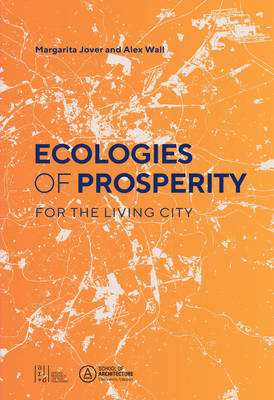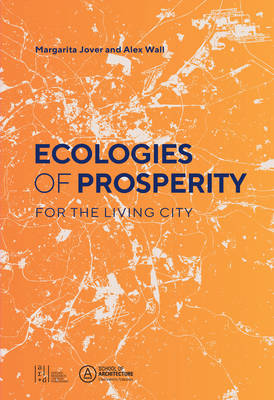
Je cadeautjes zeker op tijd in huis hebben voor de feestdagen? Kom langs in onze winkels en vind het perfecte geschenk!
- Afhalen na 1 uur in een winkel met voorraad
- Gratis thuislevering in België vanaf € 30
- Ruim aanbod met 7 miljoen producten
Je cadeautjes zeker op tijd in huis hebben voor de feestdagen? Kom langs in onze winkels en vind het perfecte geschenk!
- Afhalen na 1 uur in een winkel met voorraad
- Gratis thuislevering in België vanaf € 30
- Ruim aanbod met 7 miljoen producten
Zoeken
€ 55,95
+ 111 punten
Omschrijving
Ecologies of Prosperity for the Living City assembles key essays and projects to reflect on today's phenomenon of planetary urbanization. Urbanization is the result of a certain relationship between the territory and the society who inhabits it. Thus, without transforming the way societies inhabit the territory and its intrinsic motivations another type of city-territory cannot be built. The publication collects these motivations that could fuel this transformation and classifies them into three categories: Novel Synergies, Instrumental Commons, and Dispersed Concentrations. Organized in three chapters, the book is an invitation to citizens and urban designers to imagine alternative ways of inhabiting the planet, which can mitigate today's growing social inequality and ecological impacts. NOVEL SYNERGIES The projects presented in Novel Synergies demonstrate emergent design tactics to adapt to climate change, reorganize food production, and manage forests prone to fire, while the essays reflect on the importance of urban metabolism and thermodynamics for a renewed discipline of urban design. INSTRUMENTAL COMMONS The projects presented in Instrumental Commons demonstrate emergent design tactics that offer alternatives to market-based development to achieve more biodiverse habitats and public spaces while empowering citizens. The essays point towards another cultural construct of nature to foster an alternative politics of the Anthropocene and offer the potential of digital networks to improve democratic governance. DISPERSED CONCENTRATIONS Urbanization is the expression of our western neoliberal capitalist model of progress that materializes on increased scale of infrastructures supporting the flow of resources across the globe. In industrialized societies we see projects of redevelopment and reuse; but most relate to animating capital accumulation in the form of housing and commercial infrastructures. In the exploding cities of Asia, Africa and South America, urbanization occurs either under market-based logics with impacts on forests and agricultural land, or as slums without the necessary infrastructure on unstable lands such as rivers, streams, and coastlines.
Specificaties
Betrokkenen
- Auteur(s):
- Uitgeverij:
Inhoud
- Aantal bladzijden:
- 300
- Taal:
- Engels
Eigenschappen
- Productcode (EAN):
- 9781940743509
- Verschijningsdatum:
- 1/06/2019
- Uitvoering:
- Paperback
- Formaat:
- Trade paperback (VS)
- Afmetingen:
- 155 mm x 229 mm
- Gewicht:
- 816 g

Alleen bij Standaard Boekhandel
+ 111 punten op je klantenkaart van Standaard Boekhandel
Beoordelingen
We publiceren alleen reviews die voldoen aan de voorwaarden voor reviews. Bekijk onze voorwaarden voor reviews.









